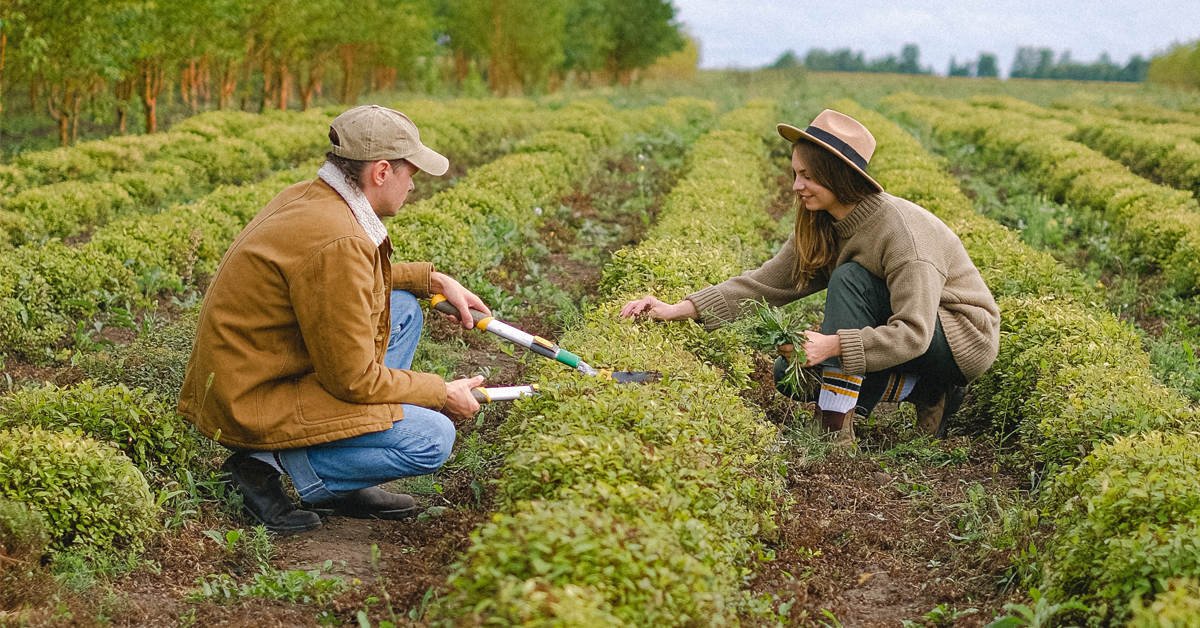
Berytech is organizing the first online edition of the DigitalAg4Her Hackathon in collaboration with the World Bank Group’s Mashreq Gender Facility and Agriculture and Food Global Practice, and in partnership with the Ministry of Agriculture and with the technical support of the Food and Agriculture Organization of the United Nations (FAO).
Through the 10-day hackathon between May 27 and June 5, 2021, teams will learn about challenges facing women in the agri-food sector and create a pipeline of implementable, scalable, innovative solutions tailored to raising efficiency, equity, and environmental sustainability of the agri-food sector in Lebanon.
Discover the Challenges
The World Bank Group and Berytech have been working with experts from the public and private sectors to identify the main challenges women face within the agri-food value chain to guide and inspire innovations in the sector.
Challenge 1: Improved access to finance and productive assets
How can digital technologies facilitate access to finance and productive assets?
Female labor force participation in agriculture in Lebanon exceeds female ownership of agricultural assets. Based on FAO’s global analysis, if women had equal access to productive resources, they could increase the yield on their farms by as much as 20-30 percent. In Lebanon, women have little access to productive assets, which negatively impacts productivity and competitiveness. Furthermore, in Lebanon, women control 8.6 percent of farms which is only 4 percent of the country’s utilized agricultural area. High interest rates and lack of collateral restrict the access of farmers to credit, further limiting their capacity to invest in the farm machinery and post-harvest systems. Smaller farmers, including women, without access to capital, typically secured inputs on a credit basis, repaying the input supplier the full price of the inputs at the time of harvest. However, because of Lebanon’s financial crisis which is exacerbated by the COVID-19 impacts, this arrangement has been canceled in favor of cash-only operations, limiting farmers’ ability to plant on credit as in the past. Estimates suggest that this will cause agricultural production and GDP to decrease because of reduced input of farmers due to currency depreciation, absence of credit facilities, and a need to rely on more expensive imported inputs.
Challenge 2: Market Linkages
How can digital technologies promote market linkages?
Women farmers and cooperatives lack an advanced understanding of consumer markets. They are not always aware of new trends, customer behavior, prices, and needs. Often, they produce what they can without taking into consideration the demand. They also have limited knowledge of logistics and capacity. They tend to sell their products in surrounding areas and hardly send their production to promising urban areas. Furthermore, COVID-19 exacerbated the situation as it led to the closure and suspension of farmers’ markets in Lebanon. Lowering information-related transaction costs can expand access to input and output markets—and reduce information asymmetries and inefficiencies caused by reliance on market intermediaries and middlemen.
Challenge 3: Capacity Building and Risk Management
How can digital technologies reduce inequality by facilitating access to information?
Women farmers lack guidance on a range of topics, including climate-smart agriculture, improved seed varieties, nutrient management, pest control, crop planning calendars, and international certifications for export which is decreasing their resilience to climate and other shocks. Women farmers also lack knowledge and expertise in business skills and financial management which further limits their productivity and competitiveness. COVID-19 further restricts the traditional extension services due to multiple lockdowns and movement restrictions.
Apply today
Apply today if you are a young professional or student under 35 with the desire to bring transformational change in the agri-food sector and empower women. Ideal candidates are agri-food experts, environmentalists, engineers, scientists, makers, agronomists, innovators, entrepreneurs, or young professionals interested in finding a digital solution to the agri-food sector. The solutions would be evaluated based on the efficiency, equity, and environmental sustainability criteria.
Three winners with innovative solutions to any of these challenges will win an in-kind grant of $4,000 (advisory services, technical assistance, etc.) as well as 2-month incubation from Berytech who will support the winners with further technical and business assistance.
Read more and apply to the DigitalAg4Her Hackathon.










